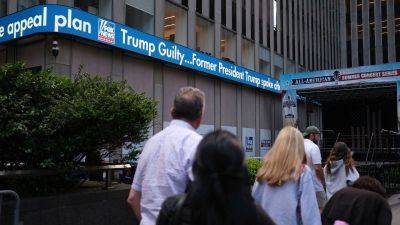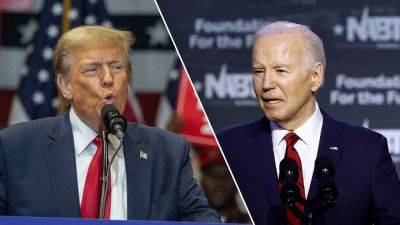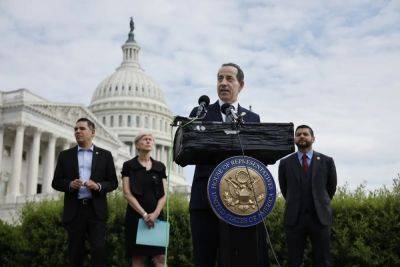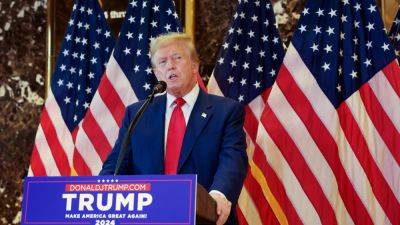Can Trump vote in November if he's convicted of a felony in New York?
Former President Donald Trump could soon join the millions of Americans whose voting rights depend on their criminal record, if a Manhattan jury convicts him of felony charges in a hush money case.
But experts say Trump is unlikely to be disenfranchised by a felony conviction in the New York case, noting that it will come down to whether the presumptive Republican presidential nominee goes to prison as part of his sentence.
Forty-eight states prohibit some or all Americans with felony convictions on their record from voting, according to the Sentencing Project, and an estimated 4.4 million Americans — approximately 2% of the voting-age population — could not vote in the 2022 elections due to those laws. The group estimates that more than 1 million of those disenfranchised Americans live in Florida, where Trump established his official residency in 2019.
Florida defers to other state laws when it comes to disenfranchising voters who are tried and convicted elsewhere. That means that Florida voters like Trump would lose their voting rights only if the state where they are convicted would disenfranchise them for the crime, too. And if the state of their conviction would restore their voting rights, so would Florida, said Blair Bowie, an attorney at the Campaign Legal Center who advocates for the end of felony disenfranchisement.
New York prohibits those serving time behind bars for felony convictions from voting, and voting rights are restored as soon as the individual leaves prison. Those convicted of felonies who do not go to prison never lose their voting rights.
In the New York case, “the only way he wouldn’t be able to vote is if he is in prison on Election Day,” Bowie said.
The 12-person jury in Trump's Manhattan







